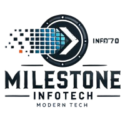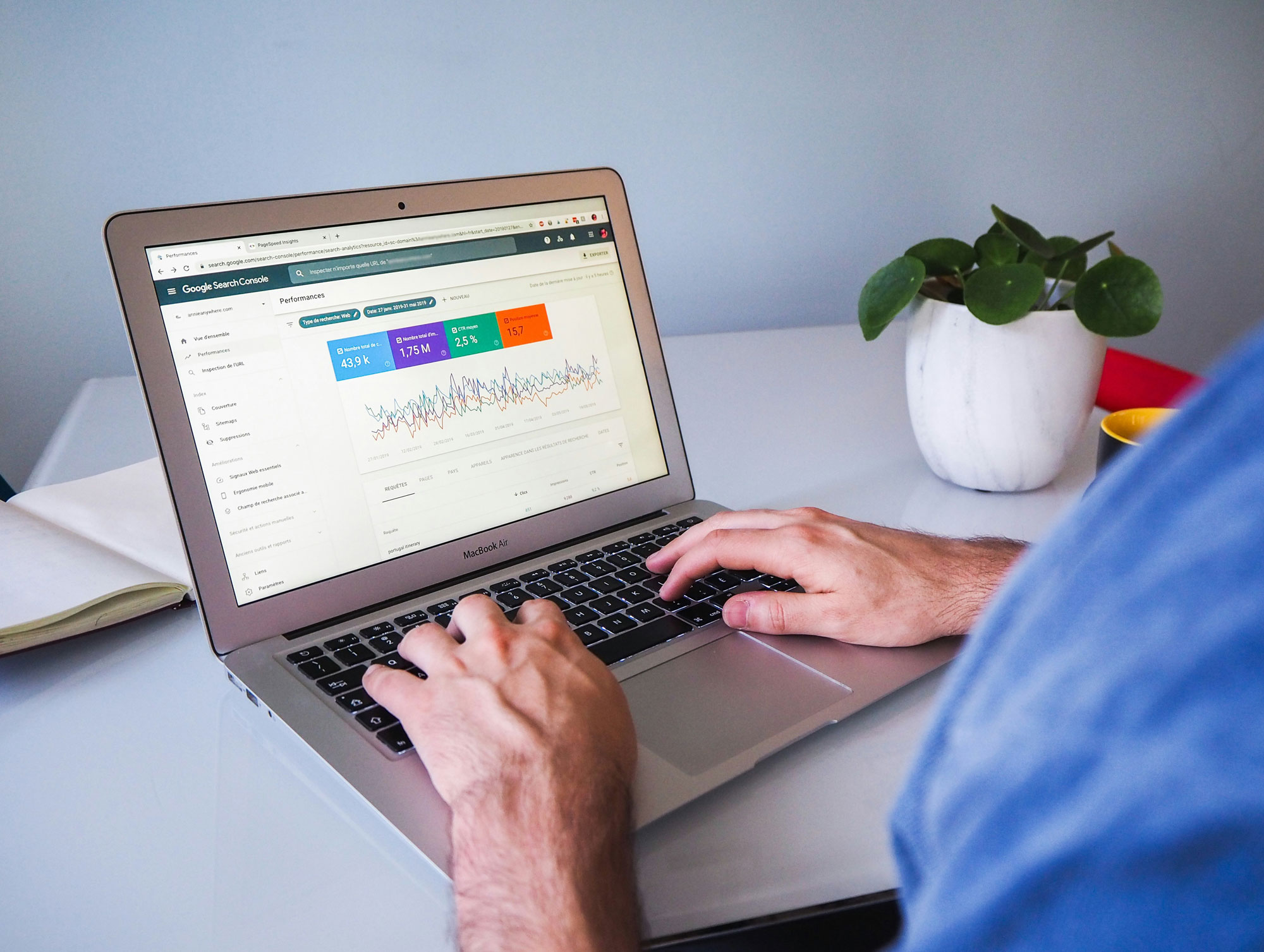“How Much Will My Website Cost in Dallas?” The Honest Conversation Your Business Needs.
You’ve got a fantastic business here in Dallas. You’re passionate about what you do, you work hard, and you know that a strong online presence is non-negotiable in 2025. You’re probably looking at your current website (or planning a new one) and asking the big question: “How much is this actually going to cost me?”
It’s the first question on everyone’s mind, and rightly so. You’re running a business, and every dollar counts. But here’s the honest, sometimes frustrating, answer you’ll hear from almost any expert: “It depends.”
I know, I know. Not exactly the clear-cut figure you were hoping for. But think of it this way: How much does a “car” cost? Or a “house”? The answer varies wildly depending on whether you’re looking for a used compact sedan or a luxury SUV, a modest starter home, or a sprawling estate in Preston Hollow.
Building a website is no different. It’s not a single product with a fixed price tag; it’s a dynamic investment tailored to your unique business goals, features, and ambitions. And in a vibrant, competitive market like Dallas, the stakes (and sometimes the prices) are a bit higher because the expectations for quality and performance are so much greater.
So, instead of a single number, let’s have an honest conversation about what truly drives website costs in Dallas today. We’ll break down the factors, give you realistic ranges, and help you understand what you’re really paying for – and why it’s worth every penny.
The “It Depends” Breakdown: What Shapes Your Website’s Price Tag
Your website’s cost is a direct reflection of its complexity, its purpose, and the expertise you bring in to build it. Let’s unbundle the key components:
1. The Breadth & Depth: Complexity and Features
This is perhaps the biggest swing factor. Are you looking for a digital business card, or a full-blown interactive platform?
-
The “Digital Business Card” (Simple Brochure Website):
- What it is: A few static pages (Home, About Us, Services, Contact), basic information, contact form. Minimal animations or custom functionality. Designed primarily to establish an online presence.
- Cost Drivers: Simplicity is key. Often built on easily customizable templates.
- Typical Cost Range (Dallas): $5,000 – $15,000+
- Best for: Small businesses just starting online, portfolios, very basic informational sites.
-
The “Lead Generator” (Mid-Range Website):
- What it is: More pages, blog functionality, advanced contact forms, email marketing integration (e.g., Mailchimp), potentially some basic CRM integration, improved UI/UX, light SEO optimization. Focused on capturing leads and nurturing relationships.
- Cost Drivers: Requires more custom design elements, content planning, and third-party integrations.
- Typical Cost Range (Dallas): $15,000 – $40,000+
- Best for: Service-based businesses (e.g., real estate agents, consultants, local contractors), B2B companies aiming for lead capture.
-
The “Online Storefront” (E-commerce Website):
- What it is: Full product catalogs, shopping cart functionality, secure payment gateways, user accounts, order management, shipping integrations, review systems. May involve advanced search filters, personalization.
- Cost Drivers: Complex database management, security requirements, detailed product photography, inventory management system integration, potentially ongoing product entry.
- Typical Cost Range (Dallas): $40,000 – $100,000+ (for standard platforms like Shopify Plus, WooCommerce, basic Magento)
- Best for: Retailers, brands selling physical/digital products, businesses with subscription models.
-
The “Game Changer” (Custom Web Application/SaaS Platform):
- What it is: Highly specialized, interactive web platforms built from scratch for unique business processes (e.g., customer portals, booking systems, learning management systems, internal tools, SaaS products). Involves complex logic, custom user roles, and often significant API integrations.
- Cost Drivers: Extensive discovery, bespoke development, custom database design, rigorous testing, advanced security, potential for AI/ML integration.
- Typical Cost Range (Dallas): $100,000 – $500,000+ (and ongoing development costs easily push it higher)
- Best for: Tech startups, large enterprises, businesses with highly specialized needs that no off-the-shelf solution can meet.
-
Advanced Features that Add Up:
- AI/ML Integration: Chatbots, personalization engines, predictive analytics.
- AR/VR Elements: Immersive product views, virtual tours (think Dallas real estate).
- Real-time Data: Live dashboards, dynamic content feeds.
- Complex Integrations: Connecting with proprietary systems or multiple third-party tools.
- Migration of Large Datasets: Moving existing customer or product data.

2. The Look & Feel: Design and User Experience (UX/UI)
A stunning, intuitive website isn’t an accident; it’s the result of meticulous design.
-
Template-Based Design:
- What it is: Starting with a pre-designed theme or template (e.g., WordPress themes, Shopify themes) and customizing it with your brand colors, logo, and content.
- Cost Drivers: Less design time, faster deployment.
- Typical Cost Impact: Lower end of the range.
- Consideration: May limit unique branding and functionality.
-
Custom Design (UI/UX from Scratch):
- What it is: Every pixel, every interaction, every user journey is custom-designed specifically for your brand and target audience. Involves extensive user research, wireframing, prototyping, and multiple design iterations.
- Cost Drivers: Significant investment in design talent (UX researchers, UI designers), user testing, and iterative refinement. This is where you pay for strategic thinking and bespoke aesthetics.
- Typical Cost Impact: Higher end of the range.
- Consideration: Delivers a truly unique, highly optimized, and memorable user experience.

3. The Words & Pictures: Content Creation and Migration
What goes on your website is as important as how it’s built.
- Copywriting: Do you have compelling, SEO-optimized text ready, or does the agency need to hire professional copywriters to craft your message? Good copy translates to better conversions.
- Photography/Videography: High-quality, professional visuals are crucial. Will you provide them, or will the agency source/create them? Custom videos and photography of your Dallas team or location can significantly add to the cost but also to authenticity.
- Content Migration: If you’re redesigning an existing site, moving old blog posts, product descriptions, and images can be a surprisingly time-consuming (and thus costly) task.
4. Under the Hood: Technical Foundations
The choice of underlying technology impacts performance, scalability, and security.
- Platform Choice:
- WordPress: Highly versatile, but requires careful management of themes/plugins. Can be cost-effective for smaller sites but scales up for complex ones.
- Shopify/BigCommerce: Excellent for e-commerce, offering robust built-in features but with monthly fees and sometimes less flexibility for deep customisation.
- Custom Frameworks (e.g., Laravel, Ruby on Rails, Django, Node.js): Used for highly bespoke web applications, offering ultimate flexibility but requiring specialized developers.
- Headless CMS (e.g., Contentful, Strapi): Separates content from presentation, offering flexibility for multi-platform content delivery but often adds complexity.
- Hosting:
- Shared Hosting: Cheapest, but not ideal for performance or security.
- VPS (Virtual Private Server): More power and control, mid-range cost.
- Dedicated Server/Cloud Hosting (AWS, Azure, Google Cloud): Most expensive, but offers unparalleled scalability, performance, and reliability – crucial for high-traffic sites or complex apps.
5. Connecting Your World: Integrations
Your website often needs to “talk” to other software your business uses. Each integration adds complexity and cost.
- CRM (Customer Relationship Management): Salesforce, HubSpot, Zoho CRM.
- Marketing Automation: Marketo, ActiveCampaign, Constant Contact.
- Payment Gateways: Stripe, PayPal, Square, Authorize.net.
- ERP Systems: SAP, Oracle.
- Booking/Scheduling Systems: Calendly, Acuity.
- Live Chat/Support Tools: Zendesk, Intercom.
- Analytics & Tracking: Google Analytics, heatmaps, conversion tracking tools.
6. Getting Found: SEO and Digital Marketing Prep
A beautiful website is useless if no one can find it. Basic SEO implementation should be baked into any website build.
- Basic On-Page SEO: Proper title tags, meta descriptions, headings, image alt text, clean URLs.
- Local SEO Setup: Optimizing for Google Business Profile, local keyword integration (e.g., “Dallas web design”), local schema markup.
- Analytics Setup: Proper installation and configuration of tools like Google Analytics 4 to track performance.
- Advanced SEO Strategy: In-depth keyword research, competitive analysis, content strategy, link building. This often becomes an ongoing service.

Who’s Building It? The Choice of Partner in Dallas
The price also reflects who you hire to build your digital home.
-
DIY Website Builders (Wix, Squarespace, GoDaddy):
- Cost: Extremely low (monthly fees from $10-$50).
- Pros: Quick, easy, no coding.
- Cons: Limited customization, poor SEO performance, not scalable, often generic look, you own the heavy lifting.
- Best for: Very small businesses with minimal needs and budget, quick personal projects.
-
Freelancers:
- Cost: Varies widely ($1,000 – $30,000+), often more affordable than agencies.
- Pros: Direct communication, potentially more flexible, tailored solutions for specific skills.
- Cons: One-person band (limited skillset), no backup if they’re sick/busy, may lack strategic depth or ongoing support, project management can be on you.
- Best for: Defined, smaller projects where you understand exactly what you need.
-
Web Development Agencies (like those in Dallas):
- Cost: Generally the highest, but offers the most comprehensive service ($5,000 – $500,000+ depending on scale).
- Pros: Dedicated team (designers, developers, strategists, project managers, SEO experts), proven processes, long-term partnerships, ongoing support, higher quality, strategic guidance, professional project management, scalability.
- Cons: Higher initial investment.
- Best for: Businesses serious about growth, complex projects, wanting a long-term digital partner, peace of mind.
Why Dallas Agencies Might Seem Pricier (and Why it’s Worth It): Dallas is a major metropolitan area with a high cost of living. This naturally reflects in agency rates. However, you’re paying for:
- Top Talent: Access to highly skilled, experienced professionals.
- Local Market Insight: Agencies here understand the Dallas competitive landscape and consumer behavior.
- Accountability & Collaboration: Easier in-person meetings, stronger working relationships, and a vested interest in local client success.
The Hidden (and Essential) Costs: Don’t Forget Ongoing Maintenance!
Launching your website isn’t the finish line; it’s the starting gun. Neglecting ongoing costs is a common mistake that can lead to security breaches, poor performance, and eventual redesigns.
- Domain Name: ~$10-$20/year (your website address).
- Hosting: Varies from $10/month (shared) to $500+/month (dedicated/cloud for large apps).
- SSL Certificate: Often included with hosting, but crucial for security (HTTPS).
- Website Maintenance & Support Plans: Essential for updates, security patches, backups, and bug fixes. Often a monthly retainer (e.g., $100 – $1,000+ depending on complexity and included hours).
- Software Licenses/Plugins: Monthly or annual fees for specific functionalities (e.g., premium WordPress plugins, Shopify apps, CRM subscriptions).
- Content Updates: Creating new blog posts, updating product descriptions, etc. (either internal cost or outsourced).
- Ongoing SEO/Marketing: To maintain visibility and continue attracting traffic (can be a significant monthly retainer).
- Feature Enhancements/Scalability: As your business grows, you’ll want to add new functionalities.

Is It Worth It? The ROI Conversation
Looking at those numbers, it’s easy to feel overwhelmed. But let’s shift perspective: a website isn’t an expense; it’s an investment.
- Increased Leads & Sales: A well-built, high-performing website is your ultimate lead generation and sales machine, converting visitors into customers 24/7.
- Enhanced Credibility & Trust: A professional website builds immediate trust and positions you as a leader in your Dallas industry, attracting higher-value clients.
- Scalability for Growth: A robust website can grow with your business, supporting increased traffic and new service offerings without constant rebuilding.
- Competitive Advantage: In a thriving market like Dallas, a superior online presence sets you apart from the competition.
- Time Savings: Automation through your website (e.g., booking, FAQs, lead capture) frees up your team to focus on core business activities.
Your Next Step: Get a Custom Quote, Not Just a Price List
Ultimately, the best way to get an accurate cost for your website in Dallas is to engage in a detailed discovery process with a reputable web development agency. They’ll ask the right questions, understand your vision, and provide a transparent, itemized quote based on your unique needs.
Think of it as planning your business’s future digital home. You wouldn’t buy a house sight unseen or based on a generic price. Invest the time in finding the right architect, the right builder, and you’ll end up with a digital asset that serves your Dallas business for years to come. Your future clients are waiting.
Frequently Asked Questions (FAQs) about Website Costs in Dallas
Q1: Why is there such a wide range in website development costs? A1: The range is wide because websites vary in complexity as much as cars or houses do. A simple informational site needs less work than a complex e-commerce platform with custom integrations or a full-blown web application. The features, design customization, content needs, and the expertise of the team building it all contribute to the final price.
Q2: Should I go for the cheapest option to save money? A2: While budget is important, the cheapest option often results in a “poor website” (as discussed in a previous blog!) that can cost you more in lost clients, security breaches, and future redesigns. It’s often a case of “you get what you pay for.” Prioritize value, expertise, and long-term ROI over the lowest initial price.
Q3: Are website costs higher in Dallas compared to other cities? A3: Generally, major metropolitan areas like Dallas have higher operating costs and salaries for skilled professionals, which can reflect in agency rates. However, you also gain access to a larger pool of highly experienced agencies with deep market understanding, which provides significant value.
Q4: What’s the difference between a “one-time cost” and “ongoing costs” for a website? A4: The “one-time cost” is typically the initial payment for the design, development, and launch of your website. “Ongoing costs” are the recurring expenses necessary to keep your website operational, secure, performing well, and up-to-date. These include domain registration, hosting, maintenance plans, software licenses, and ongoing SEO/marketing.
Q5: Will my website cost less if I provide all the content (text, images, videos)? A5: Yes, absolutely! Providing ready-to-use, high-quality content (text, professional photos, videos) can significantly reduce the cost. If the agency needs to hire copywriters, photographers, or videographers, those services will add to the overall price.
Q6: How can I get an accurate quote for my specific website project? A6: The best way is to engage with a few reputable Dallas web development agencies for a detailed discovery session. Be prepared to discuss your business goals, target audience, desired features, existing content, and your long-term vision. Based on this, they can provide a tailored, itemized proposal.





